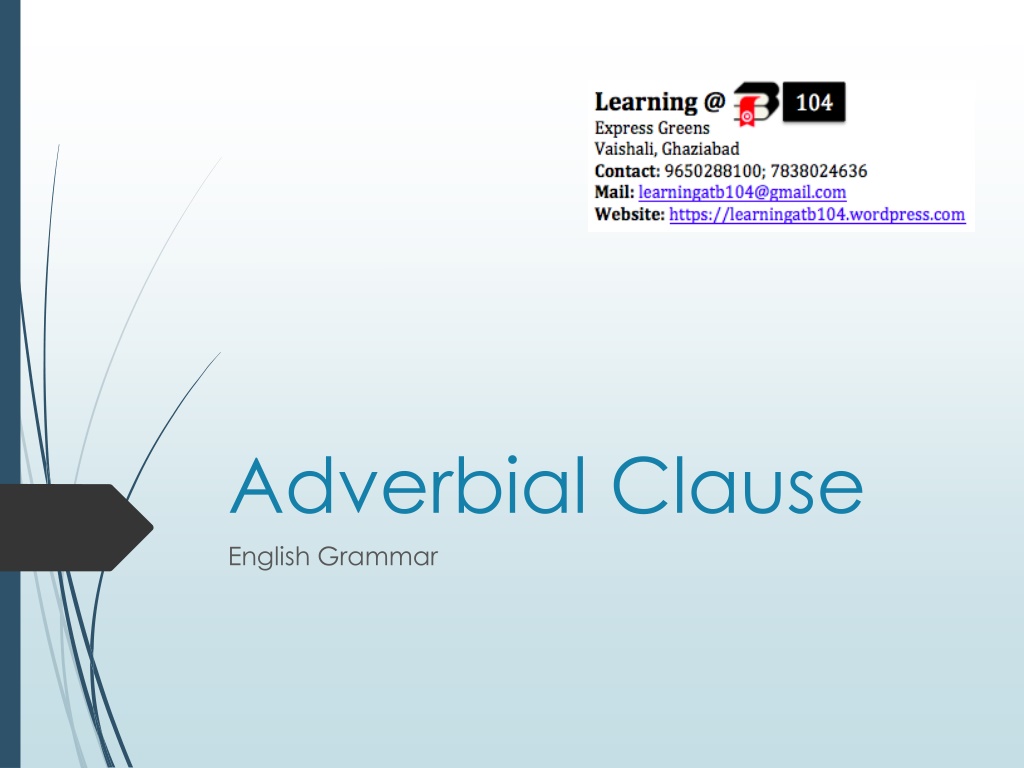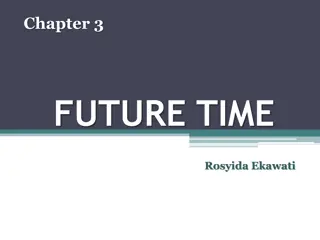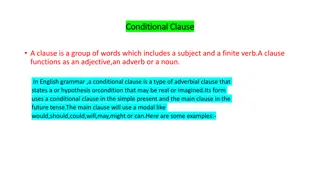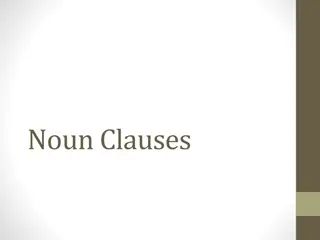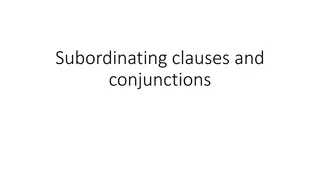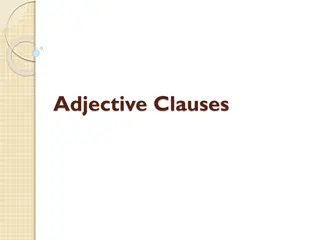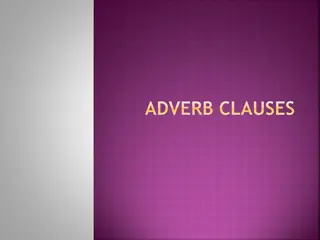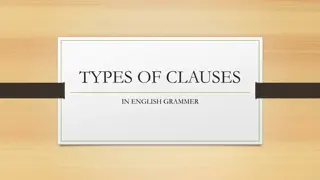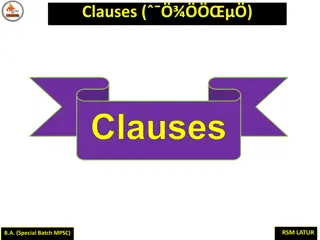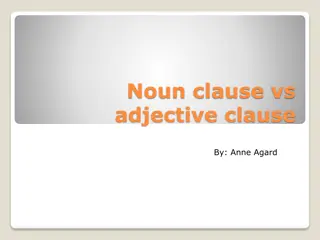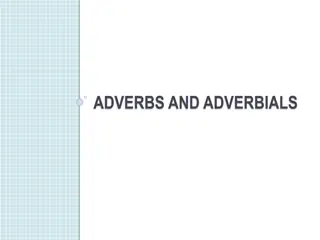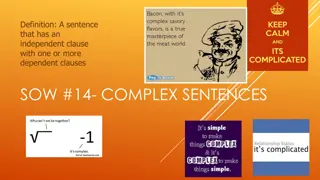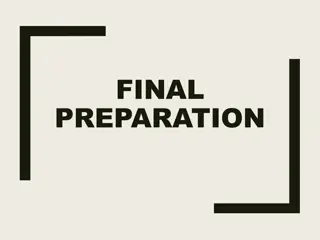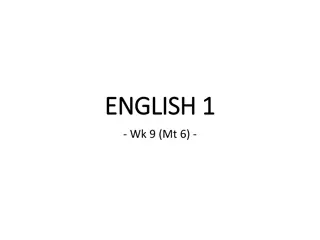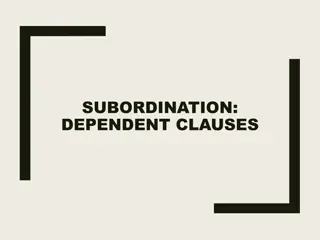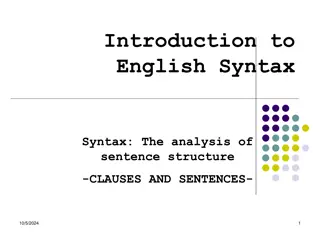Understanding Adverbial Clauses in English Grammar
Adverbial clauses in English grammar serve as adverbs to modify verbs, providing information about time, place, cause, contrast, condition, purpose, result, and manner. By exploring the types of adverb clauses, subordinating conjunctions, and examples, you can enhance your understanding of how adverbial clauses function in sentences.
Download Presentation

Please find below an Image/Link to download the presentation.
The content on the website is provided AS IS for your information and personal use only. It may not be sold, licensed, or shared on other websites without obtaining consent from the author. Download presentation by click this link. If you encounter any issues during the download, it is possible that the publisher has removed the file from their server.
E N D
Presentation Transcript
Adverbial Clause English Grammar
Adverb Words to modify verbs It could be: a single word such as quickly, here or yesterday a phrase such as the day before yesterday or to see my mother can also be clauses, containing a subject and a full verb.
Adverbs, adverb phrases, and adverb clauses Look at these sentences: I saw the movie yesterday. I saw the movie on Friday. I saw the movie before I left for official trip.
Explanation yesterday on Friday before I left for official trip a one-word adverb, an adverb phrase, an adverb clause. All answer : When? , The adverb clause has: a subject ( I ) and a full verb ( left ). It is introduced by before , so it is a dependent clause. An adverb clause is a dependent clause that does the same job as an adverb or an adverb phrase.
Types of Adverb Clause S. No. Type Question Answered Example 1 Time When? After the fruit is harvested, it is sold at the market. 2 Place Where? Wherever there are computers, there is Microsoft Software. 3 Cause Why? (what caused it?) I didn t call her because I m shy. 4 Contrast How? (opposes) Although Jay has a Master s degree, he works as a store clerk. 5 Condition Under what conditions? If you save your money, you will be able to go to college. 6 Purpose Why? (what is the reason?) She joined a computer course so that she could get a better job. 7 Result What s the result of .? The stars are so far away that they can t be seen without telescope. 8 Manner How? Ancient people used star as if they were calendars.
Example: The cleaner says she left the printer cartridge here. (normal adverb) The cleaner says she left the printer cartridge where she always leaves it. (adverbial clause) Keep pouring until I tell you to stop. (adverbial clause)
Subordinating Conjunctions OR Adverbial Clause Markers S. No. 1 Type Subordinating Conjunctions Time After, as , before, as soon as, by the time, once, since, till, until, when, whenever, while Where, wherever, every where Because, now that, since, as long as, as, so that Although, though, even though, while, whereas If, even if, only if, in the event that, in case that, provided that, unless So that, in order that, in order to, so (that) So that, such that As, as if, as though, just as, like 2 3 4 5 Place Cause Contrast Condition 6 7 8 Purpose Result Manner
Tip 1. When an adverbial clause is at the start of a sentence, it is usually followed with a comma Example - When I drop my hand, jump over the line
Practice You will have to pay higher insurance ________ you buy a sports car. if before so that Although You need proper shoes to go hiking in the mountains ________ the ground is rough and hard. even though so that because before
Thank You !! Any Queries/ Doubts?
